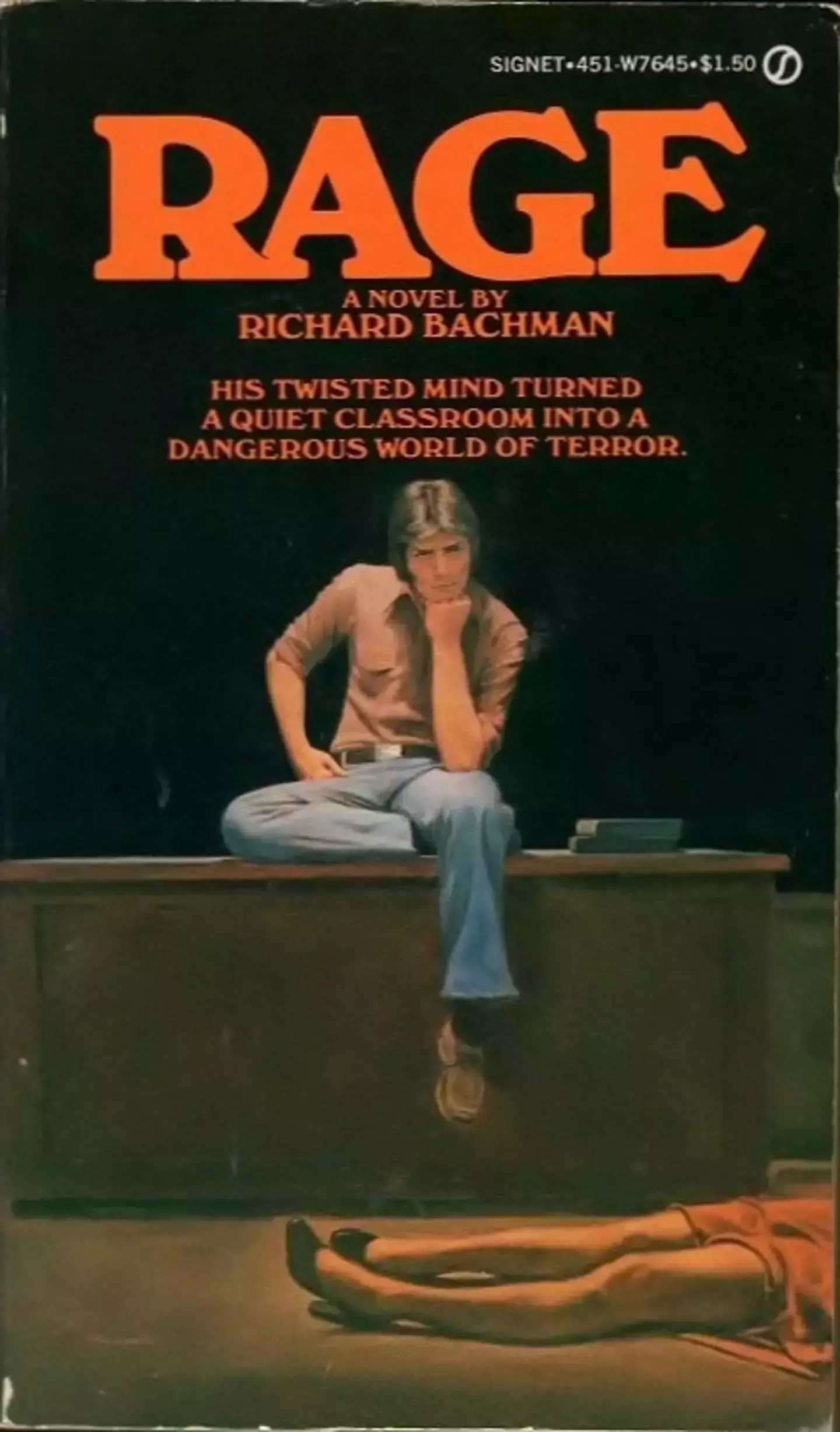Why One of Stephen King’s Novels Has Been Pulled from Shelves and Will Never Be Printed Again

Stephen King, a master of horror and suspense, made a remarkable and rare decision to remove one of his novels, Rage, from publication permanently. This decision stemmed not from issues of literary merit or market performance, but from the tragic association the book had with real-life acts of violence, specifically school shootings.
King’s decision to withdraw Rage highlights the complex relationship between art and its societal impact. In an era where media consumption influences behavior, the withdrawal of a book due to its perceived negative impact underscores the potential power of literature. King’s action raises important questions about the responsibilities of authors and the extent to which they should be held accountable for the interpretations and actions of their readers.
Stephen King’s Prolific Career
Stephen King’s literary career, spanning over four decades, is a testament to his unparalleled storytelling ability and prolific nature. His debut novel, Carrie, published in 1974, introduced the world to his unique voice, blending horror with psychological depth. This book’s success laid the foundation for a career that would see him become one of the most revered and widely read authors in contemporary literature.
With 65 novels to his name, King’s body of work encompasses a variety of genres, including horror, fantasy, and drama. His talent for creating memorable characters and immersive worlds has earned him a devoted following. His works have not only dominated bestseller lists but also inspired countless film and television adaptations, further cementing his status as a cultural icon.

He removed the book from shelves for a very good reason (Ulf Andersen/Getty Images)
King’s ability to produce such a vast and varied oeuvre is a reflection of his deep understanding of human nature and his skill in tapping into universal fears and desires. His novels often explore themes of isolation, the supernatural, and the human struggle between good and evil, resonating with readers across generations. His continued relevance and adaptability as an author underscore his significant impact on both literature and popular culture.
The Story of Rage
Rage, published in 1977 under the pseudonym Richard Bachman, is one of King’s earlier works. The novel tells the story of a troubled high school student, Charlie Decker, who brings a gun to school, kills his teachers, and holds his classmates hostage. The narrative delves into Charlie’s psychological state and the complex dynamics between him and his classmates during the hostage situation.
The book, while a work of fiction, explores themes of alienation, mental illness, and violence in a school setting. When Rage was released, it received moderate attention but did not stand out among King’s other works.
The Connection to Real-Life Violence
The turning point for Rage came in the late 1990s and early 2000s when several school shootings were linked to the novel. One of the most notable incidents was the 1997 school shooting in West Paducah, Kentucky. Michael Carneal, a 14-year-old student, opened fire on a prayer group at his high school, killing three students and injuring five others. A copy of Rage was found in his locker, which led to significant media attention and scrutiny of the book.
This was not an isolated incident. Over the years, Rage had been linked to other school shootings, raising concerns about its potential influence on young readers. The novel’s depiction of a school shooting, though fictional, mirrored some aspects of these real-life tragedies, causing discomfort and debate about the impact of violent media.

You won't find any new editions of the 1977 novel (Wikimedia Commons)
King’s Response and Decision
Stephen King, known for his thoughtful engagement with social issues, took these connections seriously. In 1999, following the West Paducah shooting and other incidents, King requested that his publisher, Viking Press, take Rage out of print. His decision was based on a sense of responsibility and a desire to prevent further association of the book with violence.
King later reflected on this decision in his 2013 essay Guns, where he discussed gun violence in the United States and the role of media. He explained that while he did not believe Rage had the power to create violent tendencies, he recognized that it could act as a “possible accelerant” for those already on the brink.
King’s decision to withdraw Rage from publication was supported by his publisher, and the book was subsequently removed from print. The novel, once part of The Bachman Books collection, was also omitted from later editions of the collection.
The Impact of King’s Decision
The removal of Rage from circulation was a significant move, highlighting the complex relationship between art and its impact on society. King’s decision was met with a range of reactions, from support and admiration to criticism and debate.
Support and Admiration: Many praised King for taking a responsible stance. By pulling Rage from shelves, he demonstrated a commitment to social responsibility and a willingness to prioritize the well-being of potential readers over commercial success.
Criticism and Debate: On the other hand, some critics argued that the decision set a precedent for censorship and raised questions about the role of art in reflecting and responding to societal issues. They contended that Rage, like any work of fiction, should not be held accountable for real-world actions taken by individuals.
Community Response and Reflections
The literary community and King’s fan base had varied responses to the removal of Rage from print. Some readers expressed disappointment at losing access to a piece of King’s work, while others understood and supported his reasoning.
Online forums and social media platforms saw discussions about the ethics of censorship and the influence of media on behavior. Many readers reflected on the themes of Rage and how they resonated with societal issues, particularly those related to mental health and violence.
In interviews and public statements, King emphasized that the decision to pull Rage was not an indictment of the book itself but a response to the unintended consequences it had in real life. He continued to advocate for responsible media consumption and the importance of addressing the root causes of violence, such as mental health and access to firearms.
King’s Legacy
Despite the controversy surrounding Rage, Stephen King’s legacy as a master storyteller and influential writer remains untarnished. His extensive body of work continues to captivate readers and inspire discussions about the human condition, morality, and the supernatural.
King’s willingness to withdraw Rage from publication showcases his sensitivity to the societal impact of his work. It reflects a broader understanding that art, while powerful, must be handled with care when it intersects with real-world issues.
Conclusion
Stephen King’s decision to pull Rage from circulation is a testament to his awareness of the responsibility that comes with being a creator of influential media. The novel’s association with real-life violence prompted a difficult but necessary choice to prioritize societal well-being over artistic preservation.
As King’s extensive bibliography continues to grow, Rage remains a reminder of the delicate balance between artistic freedom and social responsibility. It underscores the importance of considering the impact of creative works on audiences, especially when dealing with sensitive and potentially triggering subjects.
King’s actions have sparked important conversations about the role of media in shaping behavior and the responsibilities of authors in a world where fiction can have real-life consequences. While Rage may no longer be available in print, its legacy endures as a complex chapter in the story of one of the greatest writers of our time.
Featured Image Credit: Jim Spellman/WireImage/Lou Rocco/Disney General Entertainment Content via Getty Images






